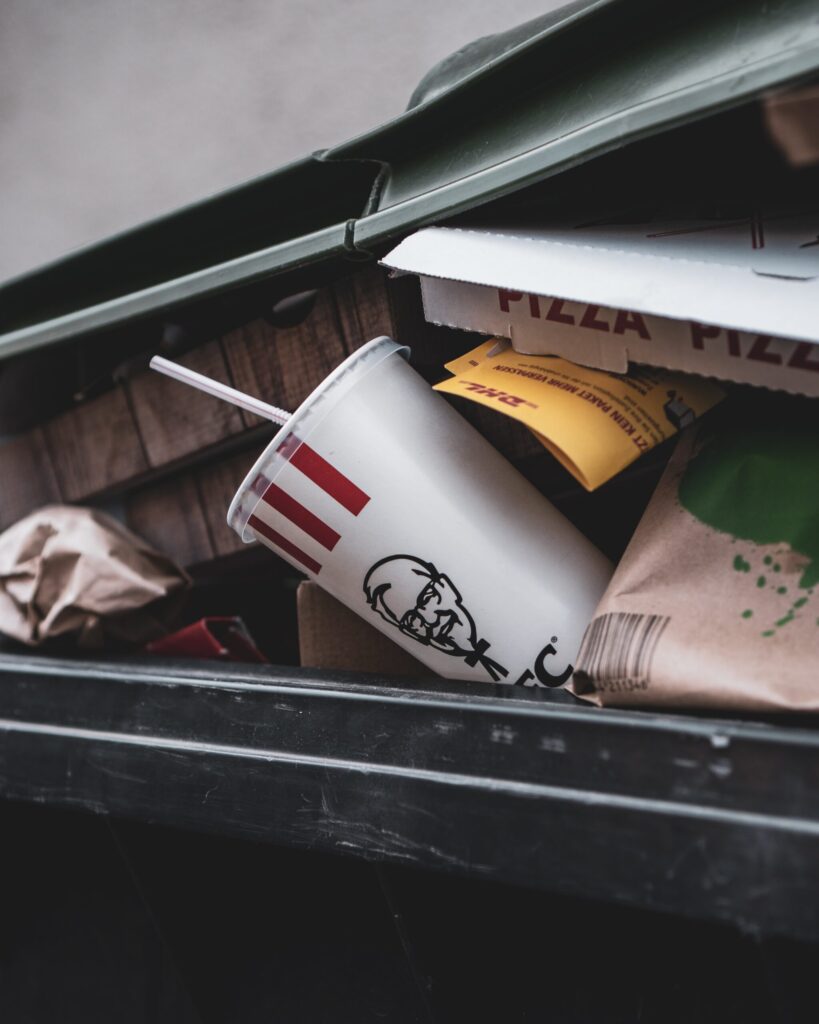
3 REASONS WHY YOU SHOULD AUDIT YOUR WORKPLACE TRASH
By Moji Igun
According to a study by Great Forest, 77% of a business’s trash isn’t trash at all. We send valuable organic matter, paper, glass, metal, and more to the landfill when those materials could go to much better use. Our current climate crisis makes it clear that our patterns of consumption are unsustainable. From the individual level to the policy level and everywhere in between, we need to be taking deliberate action to reduce our waste while keeping our businesses running smoothly.
It makes sense that you’re eager to figure out the best way to address the ways your workplace contributes to our climate crisis. The zero waste movement invites people to minimize future harm by being more intentional about the way they consume our planet’s finite resources. Before you get started on the path to zero waste in your workplace, here are three reasons why you should audit your trash.
But first, what exactly is a zero waste audit? The dreamy goal of zero waste does not happen overnight or without a strategy. A zero waste audit encourages you to get up-close and personal with your consumption habits. It’s a great first step in gaining a deeper understanding of what kinds of waste challenges you’re trying to solve.
Reason #1: To understand what types of waste you typically generate
You can start simple. Your zero waste audit can be as rudimentary as gathering some observational data by tracking everything that gets thrown out during a typical day. If you work for yourself or in a small team, you can take a peek into the trash can at the end of the day and take note of the most commonly occurring items you see.
For a larger operation, you’ll want to gather data from all your sources of waste generation. Visit the breakroom, the restrooms, the office spaces, and the shipping/receiving area to see how quickly waste accumulates when you add it all together.
Every year, the US Environmental Protection Agency publishes a summary of the major waste categories. By weight, paper, cardboard, food waste, yard trimmings, plastics, and metals are at the top of the list making up over 75% of the national waste stream.
To gain a better understanding of what opportunities exist to reduce waste in your workplace, you should be able to easily name your top three waste categories.
Check out the chart below which summarizes the total waste generation for the United States as of 2018 (MSW = Municipal Solid Waste). [source]
Once you understand the types of waste your workplace typically generates, you can start pinpointing where it comes from. Does your waste come mostly from one specific department or process? Does it increase at certain points of the year and decrease during others? Does it come from one-off events or meetings? Does it come from quality concerns like product damage or errors?
Noticing the patterns of waste generation gives you hints for how to prevent it in the first place.
Reason #3: To determine whether your zero waste efforts will be worth it
With the information gathered from a zero waste audit, you will be better set up to design simple solutions to divert materials away from the landfill and discover hidden business opportunities without becoming overwhelmed.
If you find you’re already diverting over 90% of your waste stream away from the landfill by recycling, composting, or designing waste out of your systems of operation, congratulations you’re already operating as a zero waste business as defined by the TRUE Zero Waste rating system. While there may still be room for improvement, you will likely want to shift your priorities towards other aspects of sustainability.
If your workplace waste audit reveals clear opportunities for improvement, it might be the perfect time to look into potential zero waste solutions.
LOOKING FOR A BEGINNER’S GUIDE TO PURSUING ZERO WASTE?
Let’s talk trash! In our free beginner’s guide, you will:
🌿 Learn what zero waste ~actually~ means
🌿 Understand why pursuing zero waste matters
🌿 The essential five-step process we use to get our clients on track to build a waste-free world
GET STARTED ON YOUR OWN WITH
OUR ROAD TO ZERO WASTE COURSE




